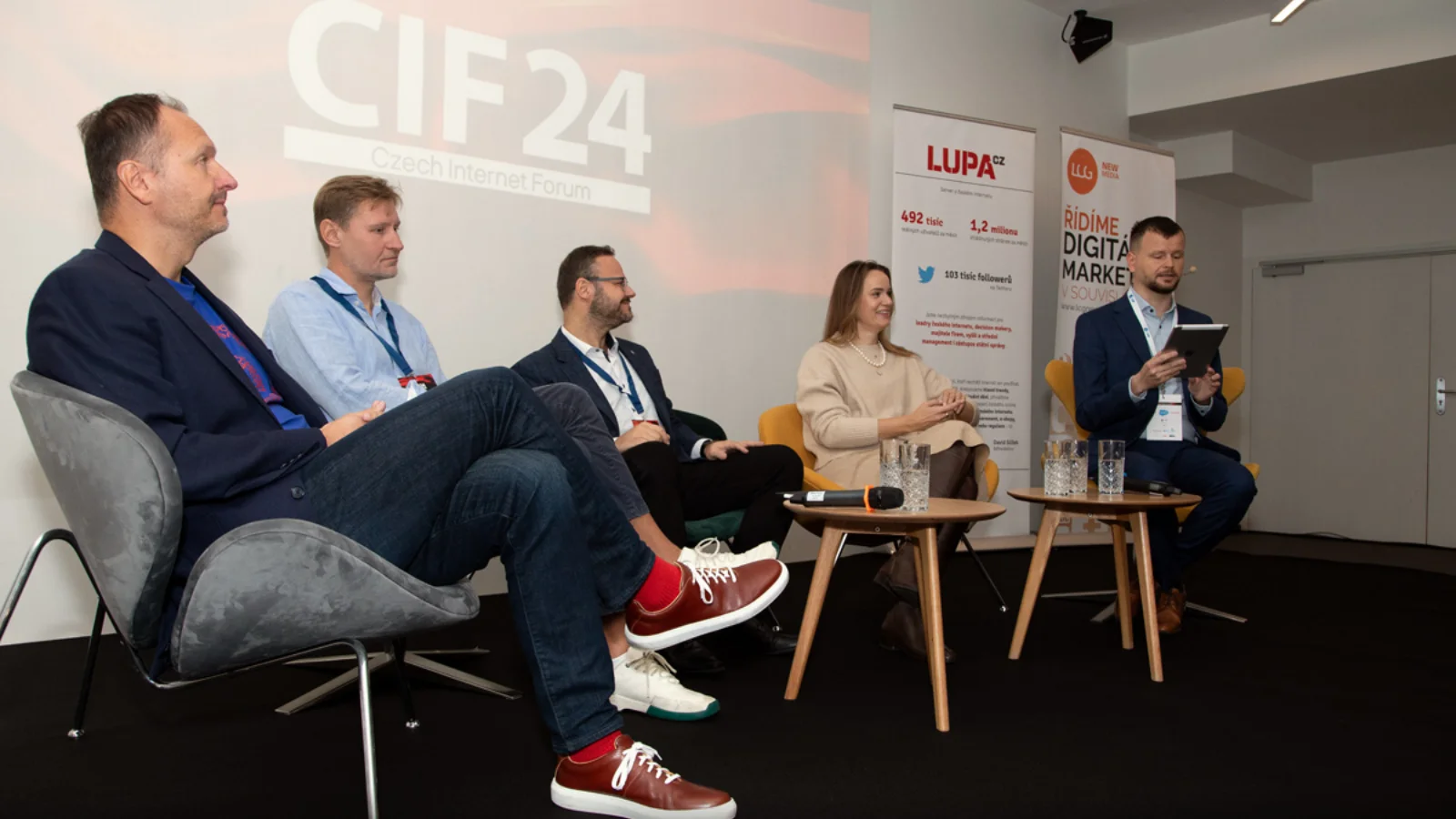
How Czech media are using AI to innovate and stay relevant
Czech media houses primarily use artificial intelligence as a helpful assistant. Generative models make it easier for them to publish content online.
Czech Radio, the public broadcaster, is experimenting with digital voice clones of well-known artists. Meanwhile, Nova TV, a commercial station, employs AI to produce highlights from football matches. AI also allows the media group Czech News Center to extend its audio content from radio stations to platforms where audio alone is insufficient. In other cases, artificial intelligence may even provide feedback on articles, streamlining editorial decisions and enhancing audience engagement.
Public opinion
The practical applications of AI, its risks, and associated technological challenges were discussed at the opening panel of the Czech Internet Forum 2024 conference. A recent survey by ResSolution and Nielsen found that 51% of Czech users distrust news content created with artificial intelligence.
Only one-tenth of respondents agree with using AI in news production across media types. The highest acceptance was for news websites (15% of users) and podcast production (12%).
“People can’t tell what’s AI-generated”
Lubor Zoufal, head of digital activities at Czech News Center, commented on audience assumptions about AI content: “I find it fascinating that people believe they can tell what is or isn’t artificial intelligence. They can’t. Every day you consume content co-created with the help of AI. I believe none of you can tell the difference.”
Expanding content through rapid video production
“We’re turning listeners into viewers,” Zoufal explained. On the Frekvence 1 website, he said, “we take news segments aired on the radio and automatically transform them into video. AI enables us to make these transformations very quickly. Last year, we would have had to hire someone, and it would have taken a long time; now, the video is ready within minutes.”
AI has also simplified Nova’s work with sports content from its paid channels. “We use a tool that can condense a football match into three to five minutes. It pulls out the most exciting moments, goals, or other highlights the editor sets,” explained Nova’s CEO, Daniel Grunt.
“We’ve noticed that the younger generation often lacks the patience to watch an entire football match. Now they can watch five-minute summaries of all games that ran simultaneously. These use cases make sense to us, but in my view, these are more like assistants or tools that extend content created by human effort.”
Public broadcasters, AI, and human oversight
Czech media do not intend to leave all content creation to machine models. Lenka Černá, CEO of the publishing house Economia, emphasized: “So far, we see AI as a useful assistant that significantly simplifies and speeds up certain tasks for us. We plan to expand the use of AI extensively in all supporting processes. On the other hand, I can’t imagine using AI without human involvement. A human must be there at the beginning, and before publication, a human must be there at the end.”
For public service media like Czech Radio, maintaining trustworthiness and human oversight is essential. Publicly funded through license fees, Czech Radio is required not only to uphold journalistic standards but also to lead in technology. “It’s fundamental for us to maintain trustworthiness and the human factor,” added Czech Radio’s Director General, René Zavoral. “Of course, we use AI as an assistant for editing, generating headlines and summaries, and similar tasks; this is something we are all familiar with.”
Guidelines for AI usage and digital experimentation
Czech Radio has internal guidelines for working with voice imprints of deceased personalities. It was a pioneer in using the synthetic voice of late singer Karel Gott for the radio release of his autobiography, My Journey to Happiness.
“It became the most downloaded audiobook we’ve ever produced,” Zavoral shared. “In October, we experimented with a documentary in which we asked actress Taťjana Medvecká for her consent, and artificial intelligence generated an artificial Taťjana Medvecká. But this is more of a showcase, an experiment to demonstrate the possible future direction for literary and dramatic production.”
In the documentary, Should I Be Afraid of You, Aila?, artificial intelligence engages in a dialogue with the author using the actress’s voice. The AI learned to mimic her voice from a one-minute sample Medvecká recorded specifically for this purpose.
Why public broadcasters need to pioneer AI—within limits
Director General Zavoral explained why public broadcasters engage in these experiments: “The Czech public funds Czech Radio, in part, because it should be a pioneer of new technologies and innovations. After all, the Czech Radio Act requires it. It would make no sense if we ignored listener and technological trends. Just as we led the way in digital radio broadcasting, I believe it’s positive that we’re a pioneer in this area too, within all the boundaries we’ve set for self-regulation.”
Commercial broadcasters and data security
Nova TV has not yet finalized its internal AI usage guidelines. “We’re starting with security, primarily concerning internal information to ensure it remains where it should be and doesn’t go elsewhere,” said Nova’s CEO, Daniel Grunt. “Then, of course, there’s the safety of our users' data when working with various tools.”
“As a company, you’re in a bit of a dilemma. You want to digitalize and accelerate the organization, so you encourage people to use as many tools as possible and educate themselves. But at the same time, you have to proceed in a way that doesn’t expose the company, ourselves, and our users’ data to risk from using insecure tools that might send data externally. We don’t have a final policy yet, but we’re quite far along,” he explained, emphasizing that the company must also rely to some extent on sound judgment.
AI’s role in data journalism
According to Lubor Zoufal of Czech News Center, artificial intelligence can contribute to more efficient operations for media houses. It’s important not to rely solely on generative tools but also to harness AI's analytical capabilities. “Data journalism seems like a big opportunity. AI can analyze data and view it in ways that even the best analyst cannot,” he remarked. “Thanks to artificial intelligence, a journalist can uncover new connections and write a significantly higher-quality article.”
AI is also useful in analyzing feedback on media products. “We use such tools on social media to collect and analyze sentiment. We continuously pull data on topics important to us, especially how sentiment evolves regarding our content, personalities, storylines, and so on,” explained Grunt.
At Economia, AI moderates reader discussions below articles. “In practice, it filters not only profane language but also various offensive comments. However, a human must set the prompt,” noted Lenka Černá.
“As a traditional media house, we can use AI to its fullest to simplify our work as much as possible. AI enables us to innovate more and test things faster that would otherwise take weeks or months and require hiring a lot of people. Now, we can do these tasks within hours or days. Maintaining trustworthiness is, in my view, the most crucial aspect. You need quality journalists, well-structured processes, and a commitment to uphold journalistic standards,” concluded Economia’s CEO.

